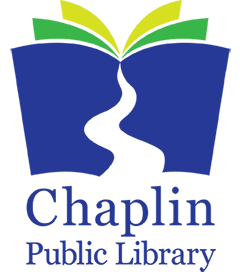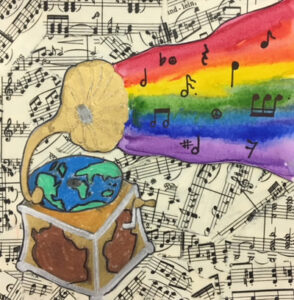 Pieces for Peace Traveling Exhibit
Pieces for Peace Traveling Exhibit
Honoring exhibit founder Jeanne Morascini
and Chaplin artist Brian Cohen
On display through the month of April
“What does peace look like to you?”
Youth from across Connecticut have voiced their hopes for peace through their artwork, by answering this question. The Connecticut Pieces for Peace traveling exhibit is sponsored by the Curriculum of Hope for a Peaceful World, a CT-based group of women educators, members of DKG Society who have been promoting peace activities and curriculum worldwide for more than 30 years. The exhibit will be on display in the children’s section of the library through the month of April.
The opening reception will honor exhibit founder Jeanne Morascini (1929-2023) and Chaplin artist Brian Cohen (1965-2024), a Library Board of Trustees member who also worked for a more peaceful
world through children’s art with his program Positive Expressions.
 Cookbook Club: Asian Recipes
Cookbook Club: Asian Recipes
Wednesday, April 24th
6:00-7:00pm
Do you like to cook, try new recipes and taste new foods? If you answered yes, please join the library’s Cookbook Club. We meet every other month to share food and recipes. This month we’ll be making Asian recipes. Please speak with a librarian to register.
 Book Talk and Sing-along with Albert Ruggerio
Book Talk and Sing-along with Albert Ruggerio
Monday, April 29th
12:30-1:30pm @ the Senior Center
Carol Ruggiero belonged to a writing group in Milford, CT for over twenty years. Upon her passing, her devoted husband Albert Ruggiero felt her writing deserved a bigger audience and published a collection of her work in Pearls from Carol. Join us to hear about Carol’s life and her short, funny, and thought-provoking stories, poems, and essays. Albert will also lead a rousing sing-along as he plays his saxophone. All are welcome!
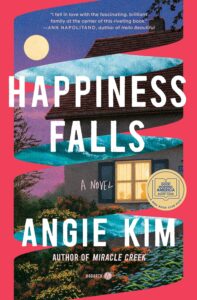 Quiet Corner Reads Book Discussion
Quiet Corner Reads Book Discussion
Happiness Falls, by Angie Kim
Monday, May 6th @ 6:00pm
Join us to discuss 2024 Quiet Corner Reads Author Angie Kim’s book Happiness Falls. Tickets to hear Angie Kim speak at the Mansion at Bald Hill on Tuesday, May 14th are for sale at the circulation desk.

Preschool Storytime
Wednesdays 10:30am
(no storytime on April 17th, instead Create a Fairy House)
Preschoolers can come hear stories, make a craft, and play. Although this is aimed at preschoolers, all ages are welcome to attend.
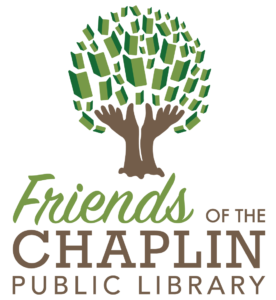 Friends Group Meeting
Friends Group Meeting
Third Wednesday of the month- 2:00 pm
We have a Friends group! If you are interested in helping the library, please attend a meeting. Please note there will be no meeting in September.

Chaplin Ukulele Band
Wednesdays – 4:30pm
Join the Chaplin Ukulele Band. No experience required. No ukulele? We have one available for checkout! Stop in and join the fun.
PROGRAM RECORDINGS
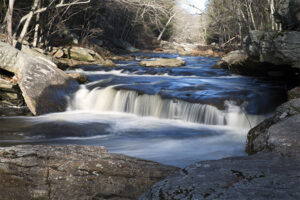
Bicentennial Talk:
The History of Chaplin Place Names
Watch the recording of Warren Church’s talk!
Join Chaplin resident and local historian Warren Church to learn about place names in Chaplin. Why is it called Bear Hill Rd? Who was Diana of Diana’s Pool?
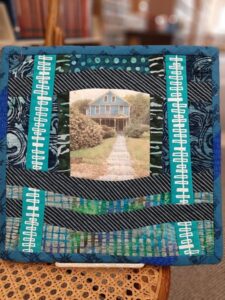 Bicentennial Talk:
Bicentennial Talk:
Ruth Snow Bowen, Chaplin Quilt Maker
Watch the Recording of Catherine Smith’s talk!
Chaplin resident and artist Catherine Whall Smith shared the history of former Chaplin resident and artist Ruth Snow Bowen, who lived on Chaplin Street and sold many of her wonderful quilts throughout Connecticut. Each month the library is displaying small fiber art pieces of homes on Chaplin Street paired with a quilt from Catherine’s collection.
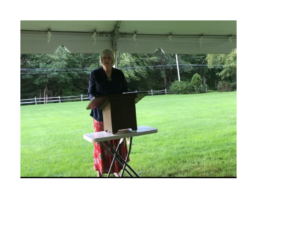 National Poetry Month: An Evening with Connecticut’s New Poet Laureates
National Poetry Month: An Evening with Connecticut’s New Poet Laureates
Recording includes Adelaide Northrop
Listen to Connecticut’s newest poet laureates, including Chaplin Poet Laureate Adelaide Northrop.
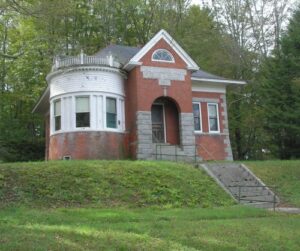 Bicentennial Talk: History of the William Ross Library
Bicentennial Talk: History of the William Ross Library
Recording of Leslie Ricklin and Ingrid Wood’s talk
Chaplin resident Leslie Ricklin and Columbia Town Historian Ingrid Wood discussed the history of the William Ross Library.
Bicentennial Talk: Benjamin Chaplin’s Will
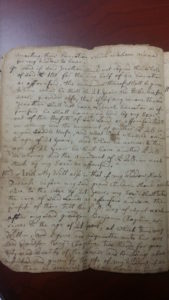
Recording of Gavin Horning-Kane and Brendan Kane’s talk
The 2nd Chaplin Bicentennial talk was a discussion of Benjamin Chaplin’s will. Chaplin residents Gavin Horning-Kane and UConn History Professor Brendan Kane explored the contents of our town benefactor’s will. Since it was written in 1790, the handwriting can be difficult to read. View the will for yourself, try your hand at transcribing a portion of it, and discover a bit about our town’s history.
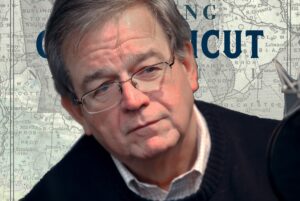 Virtual Bicentennial Talk – Trouble in the Land of Steady Habits:
Virtual Bicentennial Talk – Trouble in the Land of Steady Habits:
The Constitution of 1818
Recording of Walter Woodward’s Talk is available!
In celebration of Chaplin’s bicentennial, Connecticut State Historian Walter Woodward discussed what was happening in our state when Chaplin was taking steps to become a town. Connecticut in 1818 was in many ways eerily similar to Connecticut today: A troubled state, seeking a new direction. This lecture highlights the perfect storm of crises — environmental, economic, demographic, religious, and political — which converged in the middle of the eighteen-teens (1810s) to force the state to rethink the ways it had been conducting its affairs for the previous two centuries.
